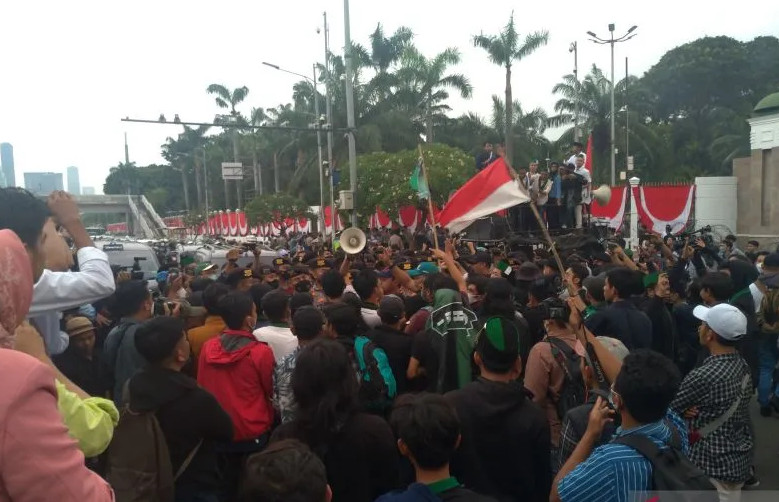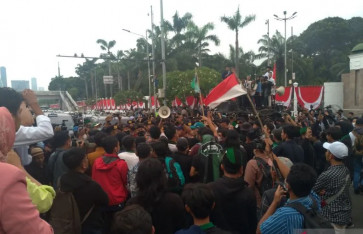Popular Reads
Top Results
Can't find what you're looking for?
View all search resultsPopular Reads
Top Results
Can't find what you're looking for?
View all search resultsThe fossil fuel subsidy hampers green energy initiatives
Indonesia has been a net oil importer since 2004 and may become a net importer of natural gas by 2030.
Change text size
Gift Premium Articles
to Anyone
a
ny international institutions have provided insights about reforming fossil fuel subsidies (FFS) in different countries, a decade after the conversation about FFS started during the Group of 20 Summit in Pittsburgh, the United States in 2009. Scholars agreed that the costs associated with FFS, whether from economic, social or environmental factors, could be avoided by reforming the system.
One crucial problem facing Indonesia is heavy dependence on fossil energy sources. Fossil fuel consumption in Indonesia has increased significantly in the past three decades, even after fuel subsidies started to decrease in 2010.
Indonesia has tried to reform its FFS, but despite huge renewable energy sources, the country remains dependent on fossil fuels. Until 2050, as stated in the Energy Mix Policy, fossil-based energy will remain dominant, representing 69 percent of the total energy supply.
The implications are twofold. First, Indonesia faces an energy deficit as a result of declining energy production in combination with growing energy demands. Indonesia has been a net oil importer since 2004 and may become a net importer of natural gas by 2030. Second, the use of fossil energy sources, such as burning coal, natural gas and oil to create electricity and heat is considered the largest single source of global greenhouse gas (GHG) emissions. As a result, fossil fuels threaten the government's national program to combat climate change. The shift to new and renewable energy has been very slow.
With respect to oil imports, Indonesia should provide consumer FFS to compensate the difference between the higher international benchmark oil price and the lower domestic prices. Indonesia provides subsidized energy to its citizens as a public service obligation with the rationale that citizens should benefit from domestic production of oil.
Unfortunately, fuel subsidies in Indonesia have drained the public treasury and diverted funds from potential projects that could deliver long-term economic growth and development such as infrastructure, education, health and social protection. Indonesia’s subsidy expenditure, which has been mostly directed toward energy subsidies, accounted for 10-20 percent of total government spending, or about 3 percent of the gross domestic product (GDP).
Even though the government grasped the opportunity offered by falling oil prices in 2013, 2014 and 2015 to reform FFS, until recently Indonesia has been significantly subsidizing fuel and electricity to keep energy affordable and to raise household purchasing power.


















